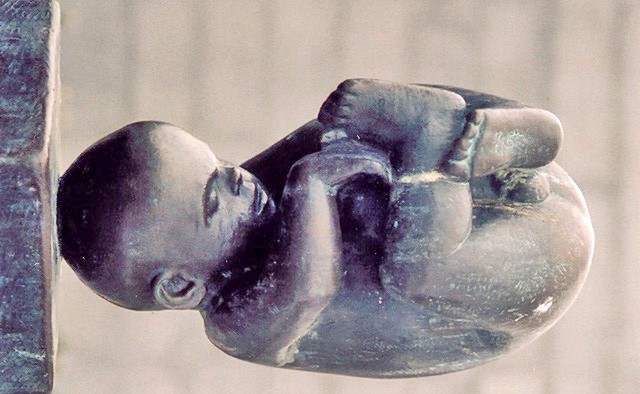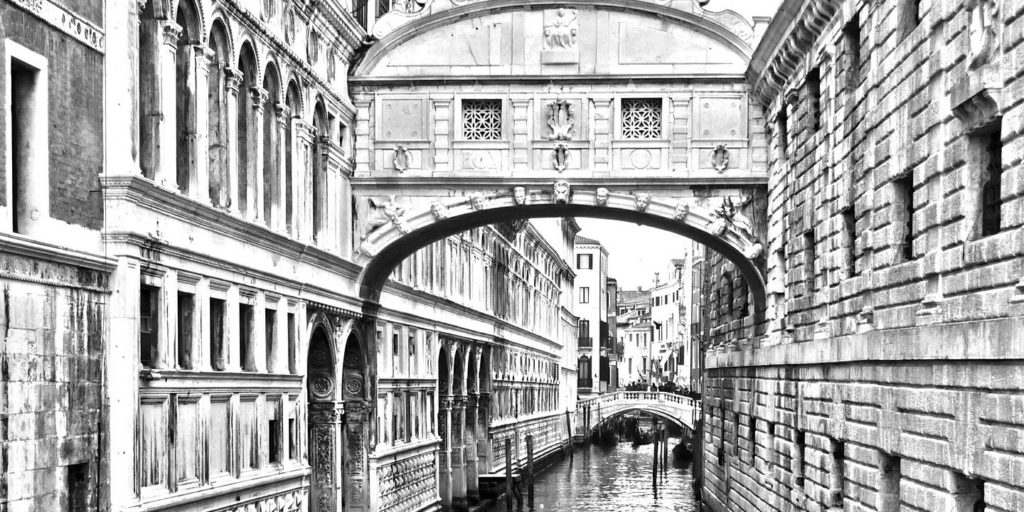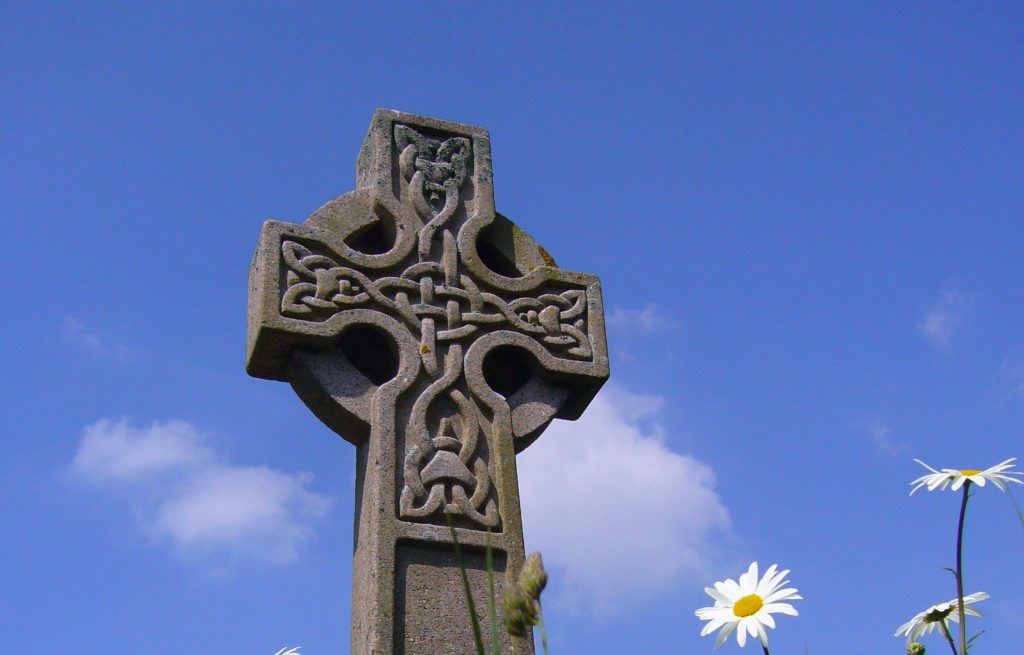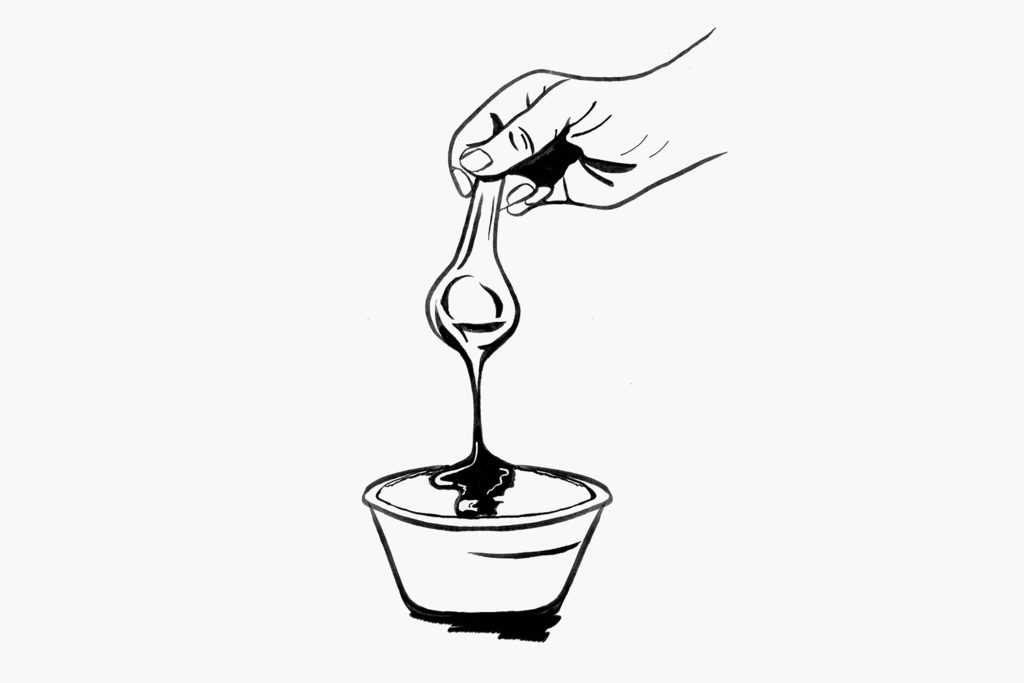A woman at the top of a steep street in Assisi, pacing back and forth, staring at the distant horizon as though it might give her an answer. ‘Decide,’ she’s muttering. From somewhere inside her a strangled voice: ‘I can’t.’ Merciless memory. The woman was myself.
It was my first trip to Italy. But it was more than a journey, it was a promise I’d made to my husband when he was dying. We were supposed to go to Italy together, but his diagnosis derailed our plans. Near the end, he said he wanted me to make the trip for both of us.
I remember crying, ‘How could I enjoy it without you?’ and his generous response: ‘It would be good if you could.’
After having been half of a couple for 30 years, it was overwhelming to think of going anywhere on my own. Every place would be haunted by the one who wasn’t there. It took three years before I got enough strength to make the trip. In an insane dare to myself, I decided to go completely alone, not even with a tour group. My initial plan had been the usual trio of tourist stops: Rome, Florence, Venice. But I deleted Venice when a friend warned, ‘Venice is for lovers. It will depress you.’
I took some Italian lessons, even though I knew most of the people I’d encounter would probably speak English. ‘Tell me the word for widow,’ I asked the teacher. Vedova. Even the word sounded mournful. How could I even think of leaving my cocoon? I thought, inches away from canceling.
It was Robert who rescued me.
We were in the same writers’ group. Robert had always intimidated me, with his brilliant critiques and poems that were as free of self- pity as he was. Struck by a polio-like illness in his youth, he couldn’t walk without crutches. Yet he was exuberant about his plans to go to Italy.
He and his ‘girlfriend’ Lenore, had arranged for a house share – a farmhouse in Perugia, plus use of the farmer’s car. Robert rattled off a dazzling list of places they would be driving to: Assisi, Pisa, Sienna…ending up in Florence.
‘Why don’t you join us?’ he asked. It would mean less time in Florence than I’d planned, but that was an easy decision.
My itinerary had me in Rome four days ahead of Robert and Lenore. An agent had chosen the hotel. ‘The Campo de Fiori area,’ she said, as if that meant anything to me. ‘Cheap,’ she assured me, which is why the hotel was filled with young students. I heard them running through the corridors during my sleepless nights, enviably exuberant in their freedom.
I crammed in as much sightseeing as I could, using the historic sights to ward off loneliness, returning to my solitary room as late as possible. Dinners were the most difficult since women didn’t usually dine out alone in Italy. ‘Uno,’ I would request apologetically. The waiter would lead me past the couples to a table in the corner. I’d order enough glasses of vino to ward off my desperate need to have my husband with me.
Finally the fifth day, when Robert and Lenore were due to arrive. We had arranged to meet in the Vatican cafeteria and then go upstairs to the Sistine Chapel. I was naïve about the size of the line waiting to get in to the Vatican, but fortunately I got there early.
A little before noon I headed for the cafeteria, assuming I’d find my friends. When I finally located the cafeteria – chiuso, closed! Not for the customary siesta, but for renovation. Shoved on by the crowd surging through the hall I panicked. There was no way to find anyone in this huge crowd.
Suddenly, unbelievably, two familiar faces – Robert and Lenore! I grabbed their hands as though I’d been marooned on a desert island.
RECOMMENDED READING

A Hopeless Omega
‘What masochistic compulsion had driven me to take a daunting elective like Latin in the first place? I had two reasons: for one, even at 13, I was not immune to the hunky cinematic lure of Rome.’

Sense of Infertility
‘If grief has a taste, then it tastes like the memory of the chips that we ate by the sea when we talked about baby names, back when the future was still family-sized.’
Robert wanted to forget about lunch and just get to the Chapel. So we all went there. Taking out the binoculars he’d cleverly brought, he worshipfully studied the ceiling, figure by figure. Two hours. Three. ‘Marvelous, isn’t it?’ Lenore asked me. I couldn’t even nod, my neck was in knots from looking up so long. I wondered if Lenore was as tired and hungry as I was. But I sensed that despite her imposing figure and definite manner, she’d do whatever Robert wanted.
When we finally left, I thought we’d have dinner together. But Lenore told me they were going back to their hotel. Jet lag was setting in, she said, hooking her arm through Robert’s.
‘See you at the train station tomorrow,’ she said.
When they disappeared I was lost in a childlike feeling of having been abandoned.
The next day we left for Perugia. I tried asking the conductor when we’d arrive, but Lenore jumped in with Italian that was impressively fluent. So much for my lessons, I thought, too intimidated to try again. Arriving in Perugia we were met by the farmer. He looked rustic, to put it kindly: shaggy gray hair, front teeth missing. He didn’t speak English, so Lenore was our interpreter. Vedova, she said, pointing at me. He looked me over with a leer that didn’t need translation.
The farmhouse was in woods some twenty miles from town. A gray stone house built centuries ago. Inside there was a large living room with a fireplace. We ate supper in front of a glowing fire – homemade bread, local cheeses, plentiful wine. What a different experience to be with friends! I thought.
There were two bedrooms at opposite ends of the living room. ‘That one is yours,’ Lenore said, pointing to the left. Then she and Robert vanished into the other room. I felt swallowed up in mine, it was so huge. There was no color, no pictures, no carpet on the icy stone floor. A few pieces of furniture: a small bureau, a chair with only three legs, a double bed with a black wrought iron frame. I heard Lenore and Robert laughing together in the other room. I had a crazy desire to knock on their door and ask if I could join them. Sanity prevailed, so I quickly undressed in that chilly room, got into the huge bed and pulled the blanket over me.
Next morning I woke early and went out to the small brick terrace to survey the scene. Miles of woods, no other houses in sight. Distant mountains, barely visible in the morning mist. I fought back memories of mountain vacations with my husband.
Lenore came out to tell me we were driving into town. There’s a medieval fountain Robert wants to see.’
The car they had been so triumphant about getting looked like a relic from a vintage auto show. It rode that way, too, lumbering over ruts in the driveway to where it met the road. Lenore drove, Robert beside her, while I sat in the back. I felt like a child, with parents in charge.
‘We should have put a marker at the end of our driveway,’ Lenore said after a few minutes, ‘so I’ll know where to turn.’
‘No problem,’ I assured her. ‘I noticed a tree at the turn that’s split in half.’
We were almost at the town when noises from the car began to sound ominous. Lenore got out to see what was doing.
‘A flat,’ she announced, looking grim. ‘Robert doesn’t have the vaguest idea how to change a tire. Do you?’ I shook my head, feeling useless. Actually it didn’t matter. There was nothing in the trunk resembling a spare, just a rusty shovel.
‘We have to keep going,’ Robert said. ‘I’m not going to miss that fountain. It’s called one of the most beautiful in Italy.’
So we inched on. Fortunately, we found a gas station as soon as we reached town. Yes, he could put a new tire on, the mechanic said in rapid-fire Italian. He also checked the oil. Then words that turned Lenore’s expression from relieved to grim . She translated for us: something with the motor.
We left the car in the gas station to undergo whatever emergency treatment could be administered and headed for the piazza in the center of town. Despite his crutches Robert propelled himself forward so eagerly I could barely keep up. ‘There it is, the Maggiore Fontana!’ he called out. Ponce de Leon finding the Fountain of Youth.
This fountain was no ordinary one. It was massive and had two basins, each encircled by a row of allegorical figures, with miniature carvings in between.
‘They were carved by Nicola Pisano and his son Giovanni,’ Robert informed me. He then proceeded to examine every feature of every figure, inch by carved inch. Like a dutiful student I listened, though I was impatient to explore Perugia.
‘We better get back to the gas station,’ Lenore said after an hour. Robert protested; he’d only canvassed half the figures.
‘We’ll come back,’ Lenore assured him .So we trudged to the gas station. Yes, the car was ready, the mechanic told her. BUT – even in Italian I caught that ominous word – the car could break down at any minute.
Lenore checked her watch. This was September and daylight was no longer reassuringly long. ‘I’m not risking the drive in the dark,’ she said. ‘We have to start back immediately.’
‘But the fountain,’ Robert began. Lenore shot back a look and he meekly got into the car. I followed, feeling as though I hadn’t even visited Perugia. Coddling the sick motor, Lenore drove so slowly we hadn’t progressed very far before dusk settled in. She tried to navigate a curve – and the car slid into a ditch. Luckily it landed right side up. We clambered out of the car and stood there in the growing darkness.
‘I have to pee,’ Robert announced. There was the unmistakable sound of a zipper opening.
‘Don’t look!’ Lenore shouted at me. I walked away, thinking how friends back home were envying my trip to romantic Italy.
‘We have to get the car back on the road,’ Lenore said. Robert sat in the car and steered, while Lenore and I managed to push it up the slope. ‘I hope this damn motor doesn’t conk out on us,’ she muttered as we eased ourselves in.
By this time the road was shrouded in darkness, woods thick on both sides. Not even a moon to help us. We crawled on, peering for some sign of civilization.
‘I’ll never find our driveway,’ Lenore said.
‘There’s a split tree where we turn,’ I reminded her.
‘Which tree?’ she said bitterly. The headlights showed a split tree every few feet!
Lenore, who doesn’t believe in prayer, muttered one.
Suddenly she screamed, ‘A light! Over there, in the woods.’ She was laughing hysterically. ‘I left the kitchen light on!’
When we reached the farmhouse we rushed in as if we had been lost for years. As we washed cheese sandwiches down with Bourbon, Lenore announced: ‘We’re doing damn little driving after this.’ I had a sinking feeling that ‘little’ would shrink to none.
‘Pleasant dreams,’ she said, closing the door to their shared bedroom.
I went into my room. It seemed even larger than the first night. My footsteps echoed on the cold floor. I left the door open so I wouldn’t feel so alone. In the dim light I saw Robert going into their bathroom naked. His back was towards me. A tall man with a beautiful long back. I had never thought of him this way, seldom seen him not bent over crutches. It was three years since any man had touched me. I curled up on my double bed fighting an image of Robert’s back, my hands caressing his shoulders, his hands…
Next morning I got up early and went out onto the terrace to clear my mind and set myself straight. Don’t fall into this nonsense, he’s Lenore’s. You’re being stupid.
Lenore emerged with a cigarette between her fingers. ‘We’re staying at the farmhouse for the day,’ she said, blowing smoke towards the mountains in the distance.
‘Fine,’ I said, as if my vote made any difference. A voice inside me asked, Is this what you came to Italy for?
‘How brave of you to go alone,’ friends had chorused when I announced my plans. Italy meant more than a vacation. Wasn’t it a test of my ability to venture on my own?
‘Breakfast is ready,’ Lenore said. I went inside to scrambled eggs, Italian bread, steaming coffee – and companionship. But something had shifted within me: recognition that I was just as lonely watching Lenore patting Robert’s arm.
‘Anyone want to go for a walk?’ I asked after breakfast. But Robert began studying The Guide to Italian Art, and Lenore was checking the charges for the car repair.
I went for a solitary walk in the woods. ‘I’m in Italy,’ I told the trees.
That evening Robert said, ‘I have to see the Giottos.’
‘They’re in Assisi,’ Lenore reminded him.
But Robert didn’t do his homework for nothing. ‘That’s only fifteen miles from here.’ Grabbing his crutches he struggled determinedly across the room.
‘Whatever you want, darling,’ Lenore said.
It occurred to me that nobody asked what I wanted.
The next morning we wrapped a scarf around ‘our’ tree and headed for Assisi, holding our collective breath every time the motor sputtered. When we finally arrived, Robert warned Lenore to park before we got to the main street. I soon discovered why. The street was a steep hill, far too narrow for the traffic that clogged it.
Like a man who had memorized the map (as he undoubtedly had), Robert led us straight to the upper part of the ancient Basilica of St. Francis – and the Giotto frescoes. There was St. Francis preaching to the birds in colors still palely luminous. Robert brought out his opera glasses, and proceeded to examine each exquisite fresco inch by inch. I was grateful to be seeing them with a friend who worshipped art…and worshipped…and worshipped…
Two hours passed and we had barely moved past these frescoes, along with a compliant Lenore (though I caught her sneaking glances at her watch).
‘How about lunch?’ she finally asked.
We went to a nearby hotel. ‘The dining room has been restored to the 13th century,’ Robert read aloud from his guidebook.
‘I hope the food is more recent,’ I said. Nobody laughed.
‘The Giottos are marvelous,’ Lenore said, smiling at Robert. ‘Aren’t they?’ She turned to me. Her question sounded like a demand.
‘Marvelous,’ I echoed, outside of their shared enthusiasm.
‘Are we going to explore the town now?’ I asked as we finished lunch.
‘We haven’t been to the lower church yet,’ Robert said indignantly. ‘That’s where the Cimabues are.’
How could I explain that I wanted to see the winding streets, the ancient buildings, the faces of real, not painted, Italians?
‘Why don’t I go for a walk?’ I said. ‘Meet you outside the church in an hour?’
‘Make it two hours,’ he said.
I hiked up the steep cobbled street. At the top there was a hotel with a panoramic view of the Umbrian countryside: a palette of ochre and green and gold beneath a flawless blue sky. Somewhere in the distance were Florence and the Italy I had come to see.
I had to choose: Remain comfortably in the circle of friends, or push on to Florence alone?
When I returned to the church, Robert and Lenore were nowhere in sight. I waited outside for what seemed like hours as the afternoon sun sank lower.
I should leave, I told myself. I would call the pensione in Florence and ask whether I could check in sooner. That was what I announced to my friends when they finally emerged.
‘But you can’t leave,’ Robert said. ‘I want you to see…’
Lenore held up her hand, stopping him. ‘It’s all right,’ she told me. ‘We understand.’
Safely back in the farmhouse, I left off calling the pensione. Robert poured a hefty amount of Bourbon for me, flames lighting up a smile that said, ‘Stay.’. I didn’t want to leave.
‘I’m sorry to be acting crazy,’ I said. ‘But if it’s all right with both of you, I’d like to stay.’
‘Excellent,’ Robert said.
‘Whatever you want,’ Lenore said. She held up the nearly empty bottle. ‘Enough for one more. That’s mine since I paid for all of this.’
The words slapped against me. Something had been exposed that she’d been careful to hide. He had been the one to invite me, hadn’t he? Did he ask her how she’d felt about having another woman join them? A single woman?
Maybe a different woman would have been more welcome. I’d heard the two of them talking about ‘the time when Lois came with us,’ with a teasing undercurrent. A thought lurked in my mind. In our writing group, Robert had shared a story about a threesome. When asked if it was fiction, he laughed.
It wouldn’t work for me. I’m not a sharer.
Next morning at dawn, unable to sleep, I went to the terrace, still in my nightgown. After a few minutes, Lenore came out in her robe with her usual cigarette.
‘Where are we going today?’ I asked.
‘Nowhere. We’re staying here for the week until it’s time to take the train to Florence.’
All those places he had told me we would see.
As if reading my mind Lenore said, ‘There’s no way the car would survive those extra miles.’ She threw the last of her cigarette over the wall. ‘Do what’s best for you.’
Yes, I could stay. But it wouldn’t be my trip. It would be theirs.
Lenore drove me to the train station, Robert in the passenger seat. We each hugged. They assured me they’d get to Florence my final day there so we could have a ‘last supper’ together. I boarded the train and slumped by a window barely able to see the Tuscan scenery, blurry through my tears.
I arrived in a city where I didn’t know a soul. The pensione looked ugly from the outside, like an office building. I took the elevator to the fifth floor and walked into a lobby that resembled all the American motels I’d been to.
After checking into my cubicle of a room, I sank onto the bed, seeing Robert and Lenore having drinks by the fireplace. Time to be a grown- up, I tried convincing myself.
I went in search of the hotel’s cocktail lounge. It turned out to be on a rooftop terrace with a stunning view of Florence. Two women were sitting there, Americans from their voices. They invited me to join them.
‘I’m a widow traveling alone,’ I confessed, and waited for sympathy.
‘Aren’t we all?’ they chorused.
They invited me to have dinner with them in the pensione dining room. ‘Safer than outside with all those gypsies.’
The women were good company at dinner, and I hoped they might be companions for the week. But they were leaving the next morning.
I waved them off after breakfast, frightened at being alone. In a gray mood, I set out to explore Florence. The anxiety I expected, getting lost in the tangle of medieval streets, never came. To my surprise I discovered how freeing it felt to wander through whichever way lured me. To stay in museums as long – or briefly – as I liked. To sit in cafes and people-watch. To freely try out my few Italian phrases with waiters and with a little girl selling flowers who miraculously understood me.
The first two nights I ate dinner in the comforting familiarity of the pensione. The third evening I challenged myself to dine in the famed Piazza della Signoria, surrounded by colossal statues – and magicians singing inevitable love songs. I raised my glass to the shadowy husband sitting opposite me and toasted ‘our’ trip.
Later that evening Lenore phoned. ‘It was brave of you to go on,’ she said. ‘But our farmer friend was disappointed. Did you realize he had his eye on you?’
‘I guess I missed my golden opportunity,’ I said.
But I’d missed more than that. Lenore was telling me they wouldn’t get to Florence in time to see me before I left. They had found a secondhand car and would be driving to Pisa, Lucca, Sienna – the historic towns Robert had promised me.
Hanging up, I sank. I could have been with them, had Robert as an incomparable guide, seen all those promised sights. I sat there unable to move. My last day – an empty day – loomed in front of me.
A thought darted into my mind.
‘How far to Venice?’ I asked the concierge.
Yes, Venice is for lovers. But isn’t the whole world? What are people like me supposed to do, leave for another planet?
I got up at dawn to catch the earliest train for the four–hour trip. Rode a vaporetto on the Grand Canal. Got off at San Marco, and stood transfixed by the sight of that theatrical piazza, surrounded on three sides by ancient buildings that looked like a stage set. Explored quaint byways, saw the infamous Bridge of Sighs, crossed countless arched bridges – and forgot that I was alone. I returned to Florence that same night triumphant.
Four years later a devastating earthquake struck Assisi, shattering the Basilica and fatally damaging the art none of us would have a chance to see again.
That same year Robert died.
Regret is an inner devastation. The irretrievable hours we might have had together that I threw away. Over and over I berated myself.
But perhaps my lonely choice was necessary. Independence doesn’t come without a price.
I find myself remembering my last hour in Florence before starting the long trip home. I used that hour to run to the Bargello, the sculpture museum. I wanted to see David a second time. This wasn’t Michelangelo’s triumphant hero. This was Donatello’s young boy, one foot resting on the head of the giant he’d slain, but his expression uncertain saying, I’ve done what I was afraid of, but what’s next for me?
I stood there murmuring, I have slain my Goliath, too.
Anne Hosansky is the author of five books and dozens of stories published in the US, England, Canada and Israel. An American, she’s proud to add that her mother was born in London





